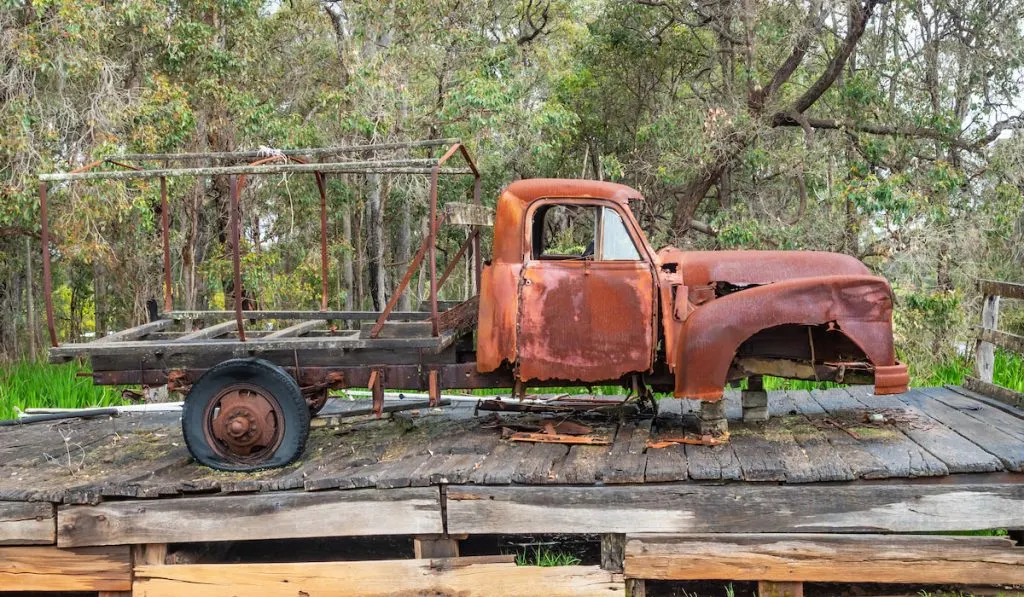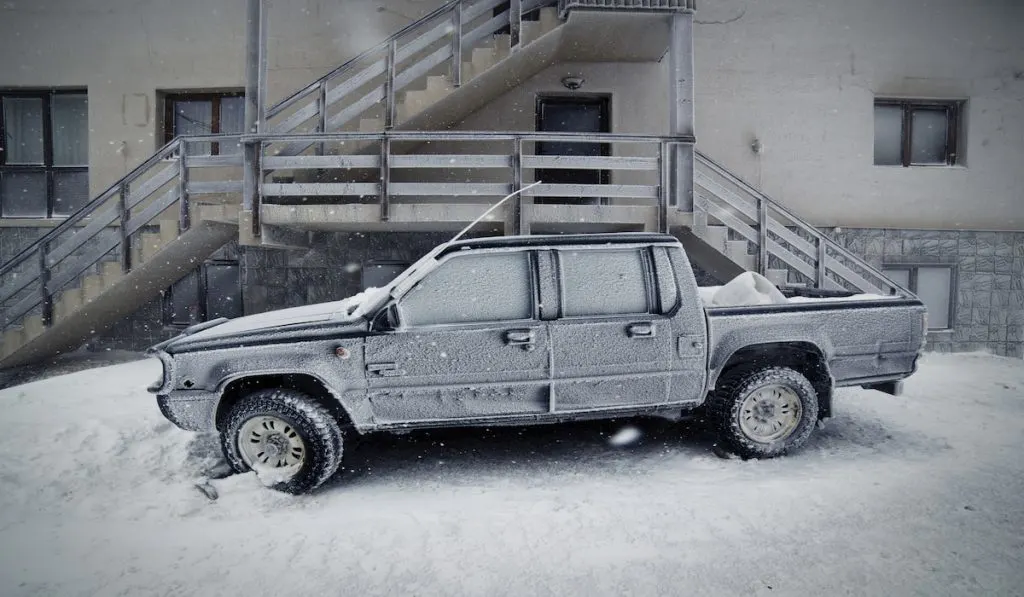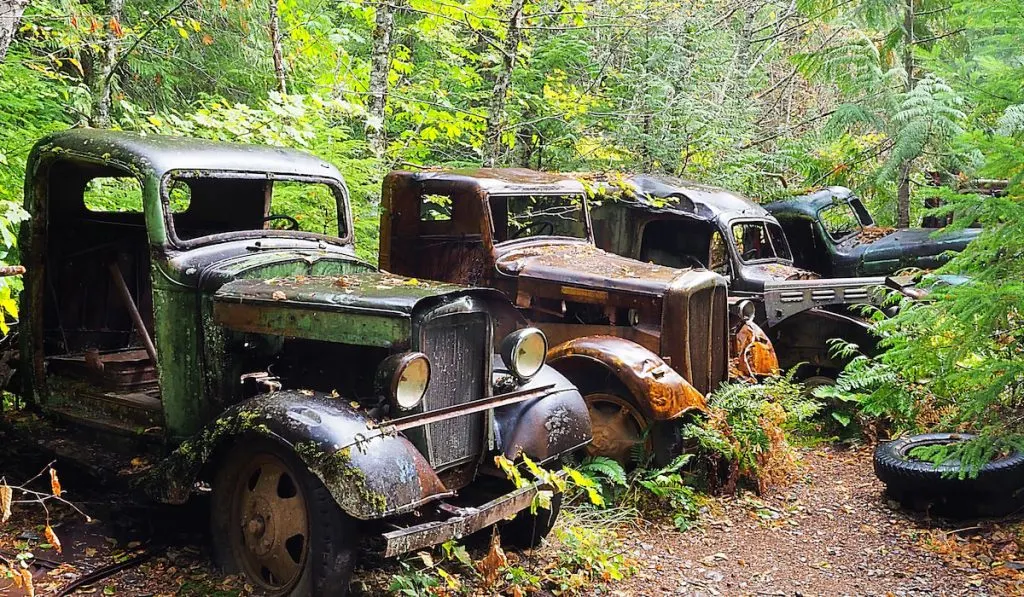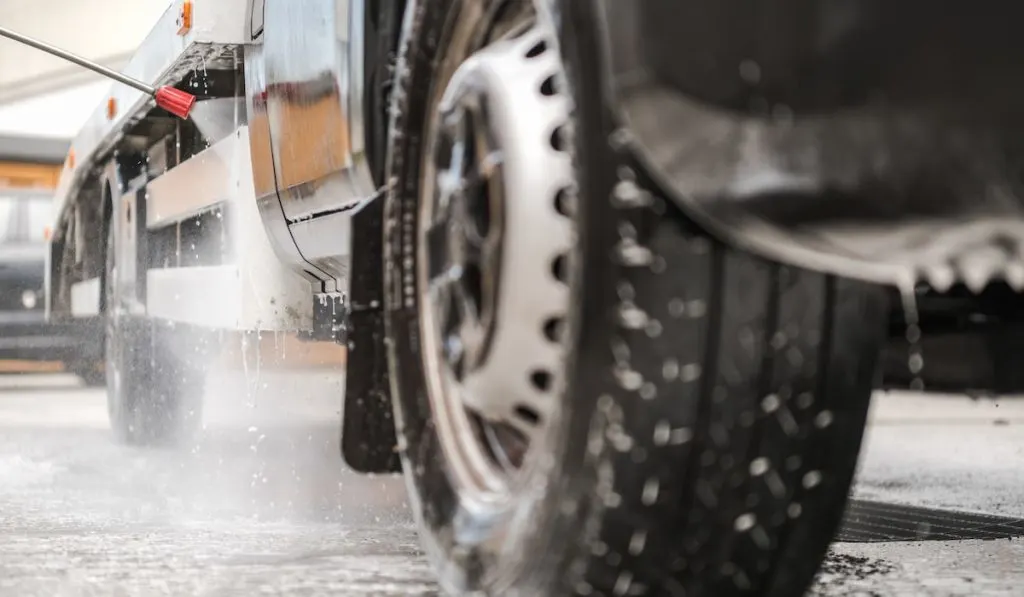Pickup trucks are the most popular type of vehicle in the US – no doubt. But beyond being so common, they also appear to rust at a higher rate than other vehicles.
If you’ve noticed this rust trend between pickup trucks and other cars, you may have wondered why it follows that pattern. Well, we may have some answers for you.
Why do pickup trucks rust so much?
Ordinarily, pickup trucks are not more prone to rust than other vehicles. However, pickup truck users expose these vehicles to conditions that promote rust more than other vehicles. So, understandably, the metal parts of pickup trucks corrode faster than those of non-pickup trucks.
Now, you are probably wondering what conditions cause rust in pickup trucks. Well, below, we give an answer to that and more.

Why Do Pickup Trucks Rust So Much?
As we hinted earlier, pickup trucks should ordinarily rust at a similar rate to other vehicles – especially if their construction quality is comparable. However, because the conditions of use of pickup trucks differ from those of other cars, they typically rust a lot – more than other cars.
The following are some conditions or causes of rust in pickup trucks:
1. Exposure to Harsher Environments
The primary reason pickup trucks rust so much is exposure to harsher environments.
For instance, you are more likely to drive a pickup truck on a farm or in the snow than a sports car. And this happens because the design of pickup trucks allows them to withstand the harsh conditions in such environments.
Unfortunately, pickup trucks are not invincible. While they may be relatively more durable to the humidity and ruggedness of harsh environments, they will ultimately succumb.
2. Exposure to Moisture
The primary factor that drives rust in pickup trucks and metals, in general, is moisture.
As mentioned earlier, pickup truck users typically drive their vehicles in harsh environments. They drive their trucks in snow, farms, communities around water bodies, and other places where the humidity level is high.
In places with high humidity, water settles on the surface of pickup trucks rapidly. While on the surface of the vehicle, the moisture will initiate corrosion. Of course, rust does not happen instantaneously, so it will take repeated exposure to humid conditions for trucks to corrode.
But since people typically choose to drive their pickups in humid conditions over other cars, it is just a matter of time before the rust starts to show.

3. Exposure to Salt
Besides moisture/water, exposure to road salt promotes rust in pickup trucks.
As mentioned before, people would rather drive their pickups in the snow in place of a sports car. But then, in some places, people apply salt to the roads to control the formation of ice and snow and improve traction. So, when you drive your pickup on those roads, some of the road salt gets on it.
Under dry conditions, salt has minimal effect on corrosion. But then snowy conditions are not dry (winter is humid), so there will be corrosion when road salt touches pickup trucks.
Salt alone will not cause pickup trucks to rust. However, it will speed up the rate at which water causes corrosion.
4. Improper Maintenance
Pickup truck owners think of their vehicles as heavy-duty machines, so some do not maintain them properly.
The mindset that pickups are very durable makes some owners less diligent in caring for them. Pickup owners will sometimes procrastinate or neglect the service schedule of their vehicles. Consequently, rust spreads even when it could have been prevented.
Things are different with sports cars and similar “lightweight vehicles;” they get better care because people consider them more fragile than pickup trucks. So, it follows that pickup trucks rust so much more than cars.
5. The Pickup Truck Is Old
Old pickup trucks do not have the same rust prevention technology as modern ones. So, in some cases, trucks rust so much because they are from way back.
For instance, back in the 1960s, carmakers would just smack paint on the steel parts of trucks. But as you may know, that is not enough to keep rust away for long. So, trucks from that time, constructed with such methods, will rust a lot.

6. Debris Accumulation
Pickup trucks are at higher risk of accumulating debris in the form of dust, grime, and dirt because of the environments they typically work in. This debris attracts water/moisture. So, when it accumulates in the crevices of pickups, it draws in more water and promotes rust.
Besides pulling water toward the truck, debris can also block rust-proofing mechanisms. So, it’s like a two-way effort to facilitate pickups rusting.
Solutions: How to Prevent and Remove Rust from Your Pickup Truck
1. Clean Your Pickup Routinely
The most straightforward way to keep your pickup truck from rusting is to wash it regularly. Beyond just washing, ensure you dry the truck. Remember, moisture causes rust, so drying is vital to preventing rust.
It goes without saying, but while washing your truck, you will remove debris and prevent debris accumulation. Then when you dry the pickup, you prevent water accumulation.
When washing your pickup, use quality wash soap. Apart from that, work with a high-pressure hose to ensure you dislodge the salt, grime, dust, and dirt.
For drying, automotive drying towels give the best results. So, get one for your pickup truck.
2. Drain Water
Besides washing your pickup, drain water from the panels regularly.
You will find drain holes in the rear quarter panels and rocker panels. Drain water out of the panels through these holes. And if you come across debris in them, clean the debris out.

3. Apply Anti-Rust Coating
Another way to keep your pickup truck from rusting in the first place is to apply an anti-rust coating.
Anti-rust coating provides a thin layer of wax on your truck, keeping it waterproof and preventing rust from forming in the first place.
4. Apply Rust Inhibitors
If rust has already started forming on your pickup truck, then you will benefit from applying rust inhibitors or rust converters.
Rust inhibitors are liquids that prevent oxidation in trucks; without oxidation, there will be no corrosion.
You may add rust inhibitors to the fluids in the truck to prevent corrosion inside the truck. You may also spray or paint them on the truck to inhibit the progression of rust.
You should not worry too much about removing rust when applying rust inhibitors. You can apply most rust inhibitors without wiping off the existing rust.
5. Apply Rust Converters
Unlike rust inhibitors, rust converters convert rust (iron oxide) to iron tannate, which is harmless to your truck. By doing this, they remove rust and may even keep new rust from forming.

6. Apply Salt Remover
If you drive your pickup truck in places that contain a lot of road salt, you should get a salt remover. Salt removers neutralize road salt, reducing the chances of rust forming on your truck.
For even better effect, apply a salt remover to your truck before applying an anti-rust coating.
Final Take
Pickup trucks rust so much because their users expose them to moisture, salt, debris, and other rust-forming substances more than other vehicles.
Besides exposure to rust-forming conditions, many truck users do not maintain their pickups as much as they should. These factors altogether leave pickup trucks at a higher risk of corrosion than other vehicle types.
